
April 17
1521 Martin Luther appears before the Diet of Worms to face charges stemming from his religious writings.
1848 Countdown to Infamy: In your correspondence with the Japanese, your conduct will be conciliatory but firm. You will be careful not to violate the laws or customs of the Country, or by any means prejudice the success of any pacific policy our government may be inclined to pursue. Nevertheless you may be placed in situations which cannot be foreseen. In all such cases, every confidence is reposed in your discretion and ability to guard the interests as well as the honor of your country. [See: Countdown to Infamy: Timeline to Pearl Harbor.]
1894 Birth: Nikita Sergeyevich Khrushchev:
Khrushchev was born in 1894 into a poor family near Kursk in south-western Russia. He received very little formal education. He joined the Bolshevik Party in 1918 and served in the Red Army during the Russian Civil War.
In 1929, Khrushchev moved to Moscow to attend the Stalin Industrial Academy. In 1931, he began to work full-time for the Communist Party, rising through its ranks to become first secretary of the Moscow City Party Committee in 1938. The following year he became a member of the Politburo, the highest decision-making body of the Communist Party. During World War Two, Khrushchev worked as a political commissar in the army.
Stalin died in March 1953. Khrushchev became leader of the party shortly afterwards, but it took him several years to consolidate his position. In February 1956, he made a secret speech to the 20th Party Congress, denouncing Stalin. It caused a sensation in the Communist Party and in the West, although Khrushchev failed to mention his own role in the Stalinist terror.
The speech initiated a campaign of 'de-Stalinisation'. Khrushchev also attempted to improve Soviet living standards and allow greater freedom in cultural and intellectual life. In the mid-1950s, he launched his 'Virgin Lands' campaign to encourage farming on previously uncultivated land in the Kazakh Republic (Kazakhstan). He invested in the Soviet space programme, resulting in the 1957 flight of Sputnik I, the first spacecraft to orbit the earth.
In relations with the West, Khrushchev's period in office was marked by a series of crises - the shooting down of an American U2 spy-plane over the Soviet Union in 1960, the building of the Berlin Wall in 1961 and, most significantly, the Cuban Missile Crisis in 1962, which brought the world to the brink of nuclear war. Despite this, Khrushchev also attempted to pursue a policy of co-existence with the West. This change in doctrine, together with Khrushchev's rejection of Stalinism, led to a split with Communist China in 1960.
Significantly, Khrushchev was not prepared to loosen the grip of the Soviet Union on its satellite states in Eastern Europe and, in 1956, an uprising in Hungary against Communist rule was brutally suppressed.
By 1964, Khrushchev had alienated much of the Soviet elite and was forced to retire by opponents led by Leonid Brezhnev. Khrushchev died on 11 September 1971 in Moscow. (BBC Historic Figures)
1895 First Sino-Japanese War: China and Japan sign the peace treaty of Shimonoseki. China recognizes the total independence of Korea and cedes the Liaodong Peninsula, Taiwan (Formosa) and the Pescadores Islands to Japan "in perpetuity." (Sedwick, Kajima) 1915 World War I: List Regiment: Gefreiter Adolf Hitler's 16 Reserve Infantry Regiment occupy a position, at Fromelles (pictured above in a drawing by Hitler), which is on a level field with water channels, willow trees and willow stalks, in the distance towards the enemy lines lie an insignificant wood with barbed wire entanglements. Under the direction of their defense-minded commander, Lieutenant General Gustav Scanzoni von Lichtenfels, the regiment works ceaselessly day and night in the subsequent weeks, to further fortify their position at Fromelles. [For further details, Click here.]
1916 World War I: List Regiment: Gefreiter Adolf Hitler endures trench warfare in Flanders (Artois) with 3 Company, 16 Reserve Infantry Regiment. [For further details, Click here.] 1917 World War I: Various: List Regiment: Gefreiter Adolf Hitler's 16 Reserve Infantry Regiment, 3 Company, fortify trenches near Arras. [For further details, Click here.] Second Battle of Gaza: British forces in Palestine make their second attempt to capture the city of Gaza from the Ottoman army. [For further details, Click here.]
1918 World War I: Various: Lys: The German drive is halted after gaining only 10 miles including the Messines Ridge. Ludendorff achieves tactical success, but a strategical failure. There is no breakthrough, and the Channel ports are safe.
List Regiment: Gefreiter Adolf Hitler's 16th RIR has been trapped, off and on, in a salient near Fountaine for the past few weeks. [For further details, Click here.] Justin Fleischmann writes: Night of 16-17 April; terrible artillery fire. Heavy gas bombardment around morning. Severe losses. In the evening, we marched to the most forward line with only 40 men [left] . . . . We got lost and ran into heavy artillery fire. 
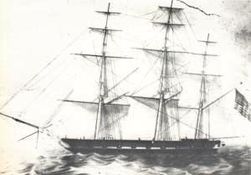
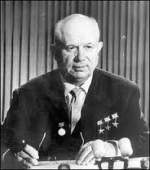
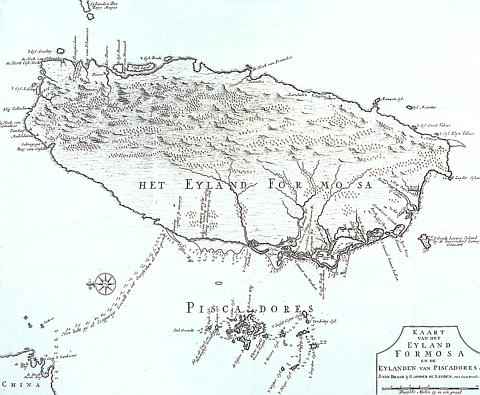

1933 Zionists: Uniformed members of BETAR (Brith Trumpeldor), a Revisionist Zionist Youth Organization, are attacked by workers and residents of Tel Aviv while marching through the city. (THP)
1935 Rearmament: The League of Nations censures Germany's policy.
From Hermann Goering's IMT testimony: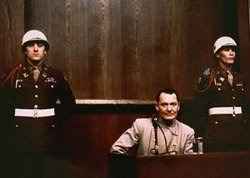
The rearming of the Air Force required, as a basic condition, the creation of a large number of new industries. It was no help to me to build a strong Air Force and not to have any gasoline for it. Here, too, therefore, I had to speed up the development of the refineries to the utmost. There were other auxiliary industries, above all, aluminum. Since I considered the Luftwaffe the most important part of the Wehrmacht—as far as the security of the Reich was concerned, and in view of the modernization of technical science—it was my duty as Commander-in-Chief to do everything to develop it to the highest peak. As nothing was there to begin with, a supreme effort and a maximum amount of work had to be achieved. That I did . . . .
I did everything possible under the technical and production conditions then prevalent, to rebuild and rearm a strong Air Force. The technical knowledge of that time led us to believe that, after 5 years of war, new technical and practical advances would be made. That is a principle based on experience. I wanted to be prepared to have an Air Force which, however the political situation might develop, would be strong enough to protect the nation and to deal blows to Germany's enemy. It is perfectly correct for Mr. Justice Jackson to ask whether the speedy elimination of Poland and France was due to the fact that the German Air Force, acting according to modern principles, contributed so much. It was the decisive factor. On the other hand, though this does not concern me, the use of the American air force was also a decisive factor for the Allied victory.
1938 Romania: An attempted coup by Fascists and the Iron Guard is smashed by the government. Many of the instigators are arrested.
1939 Nazi-Soviet relations: Soviet Ambassador Alexei Merekalov calls on Ribbentrop's chief subordinate, Baron von Weizsaeker and offers unmistakable signals that Russia is now willing to develop better relations with Germany
The Russian Ambassador visited me today, for the first time since he took up his post here (June 5, 1938) for a conversation on practical matters. He dwelt at length on a subject which he said was of particular interest to him, namely, the fulfillment of certain contracts for war materiel by the Skoda Works. Although the items involved are manifestly rather insignificant, the Ambassador regarded the fulfillment of the contracts as a test, to determine whether, in accordance with a recent statement by Director Wiehl (Head of the Commercial Policy Division of the German Foreign Office) to him, we were really willing to cultivate and expand our economic relations with Russia. The matter of these supply contracts is being looked into elsewhere.
Toward the end of the discussion, I casually mentioned to the Ambassador that even granted goodwill on our part, a favorable atmosphere for the delivery of war materials to Soviet Russia was not exactly being created at present by reports of a Russian-British-French air pact and the like. Herr Merekalov seized on these words to take up political matters. He inquired as to the opinion here regarding the present situation in Central Europe. When I told him that as far as I knew Germany was the only country not participating in the present saber-rattling in Europe, he asked me about our relations with Poland and about the alleged military clashes on the German-Polish frontier. After I had denied the latter, and made some rather restrained comments on German-Polish relations, the Russian asked me frankly [unverblumt] what I thought of German-Russian relations. I replied to Herr Merekalov that, as everybody knew, we had always had the desire for mutually satisfactory commercial relations with Russia. It had appeared to me that the Russian press lately was not fully participating in the anti-German tone of the American and some of the English papers. As to the German press, Herr Merekalov could form his own opinion, since he surely followed it very closely.
The Ambassador thereupon stated approximately as follows: Russian policy had always moved in a straight line. Ideological differences of opinion had hardly influenced the Russian-Italian relationship, and they did not have to prove a stumbling block with regard to Germany either. Soviet Russia had not exploited the present friction between Germany and the Western democracies against us, nor did she desire to do so. There exists for Russia no reason why she should not live with us on a normal footing. And from normal, the relations might become better and better. With this remark, to which the Russian had led the conversation, Herr Merekalov ended the interview. He intends to go to Moscow in the next few days for a visit.
1941 Legal procedure: Eastern territories: From a letter written by the Reich Minister of Justice to the Chief of the Reich Chancellery:
It has been my opinion from the outset that special conditions prevailing in the annexed eastern territories require special measures of penal law and penal procedure against Poles and Jews . . . . The aim to create a special law for Poles and Jews in the eastern territories was pursued further according to plan by the ordinance dated 6 June 1940. By this ordinance German penal law, which had been used in the eastern territories already from the outset Divas formally made applicable . . . .
The procedure for enforcing a prosecution has been abrogated for it seems intolerable that Poles or Jews should be able to force the German public prosecutor to launch an accusation. Poles and Jews have also been deprived of the right to prosecute in their own names or join the public prosecutor in an action. In addition to this special law in the sphere of procedure, some special conditions have been included in Article 2 of the introductory ordinance. These provisions were established in agreement with the Reich Minister of the Interior by reason of requirements which had arisen. From the beginning it was intended to augment the special conditions in case of need. This need, which had become apparent in the meantime, should be met by an executive and supplementary order to be added to the original ordinance and which was referred to in the letter from the Deputy of the Fuehrer . . . . After I was informed of the express wish of the Fuehrer that, as a matter of principle, Poles and presumably the Jews, too, are to be treated differently from the Germans within this sphere of penal law, after preliminary discussions, etc., I draw up the enclosed draft concerning criminal law and procedure against Poles and Jews . . . .
The draft represents altogether special law, both in the sphere of penal law and penal procedure. The suggestions of the Deputy of the Fuehrer have been taken into consideration to a far reaching extent. Number 1, Paragraph 3, contains a general crime formula on the basis of which any Pole or Jew in the eastern territory can in future be prosecuted and any kind of punishment can be inflicted on him for any attitude or action which is considered punishable and is directed against Germans . . . . In accordance with the opinion of the Deputy of the Fuehrer, I started from the point of view that the Pole is less susceptible to the infliction of ordinary imprisonment . . . . Under these new kinds of punishment prisoners are to be lodged outside prisons in camps and are to be forced to do heavy and heaviest labor . . . .
The introduction of corporal punishment, and that is either as penal punishment or as disciplinary measure, which the Deputy of the Fuehrer has brought up for discussion, has not been included in the draft. I cannot agree to this type of punishment because its infliction does not, in my opinion, correspond to the cultural level of the German people.
1941 World War II: Various:
Yugoslavia surrenders:
During World War II, representatives of Yugoslavia's various regions sign an armistice with Nazi Germany at Belgrade, ending 11 days of futile resistance against the invading German Wehrmacht. More than 300,000 Yugoslav officers and soldiers were taken prisoner. Only 200 Germans died in the conquest of Yugoslavia.
On March 27, 1941, two days after the Yugoslav government signed a controversial pact with the Axis powers, Yugoslav air officers, aided by the British secret services, toppled the country's pro-Axis regime. In response, Nazi leader Adolf Hitler launched a massive invasion of the country that began on April 6 with the bombing of Belgrade. The Yugoslav defenders, made up of various politically unstable nationalities, were routed by the hordes of German, Italian, Hungarian, and Bulgarian troops invading their country.
On April 17, Yugoslavia surrendered and was divided, with the exception of the puppet state of Croatia, between the four invading Axis powers. The occupying troops aggravated the traditional religious and national differences in the region, and the Serbs were especially brutalized. However, by the end of the year, two separate effective resistance movements had sprung up, one led by Colonel Dragolyub Mihailovich, which was loyal to the Yugoslav government-in-exile, and another led by Josip Broz Tito, which was made up of members of the illegal Communist Party of Yugoslavia. (History.com)
Igor Sikorsky accomplishes the first successful manned heliocopter (helicopter) lift-off from water near Stratford, Connecticut.
His dogged determination and faith in his own ability to build what many considered to be an impossible vehicle established the bedrock upon which today's helicopter industry rests. Military contracts followed the success of the VS-300, and in 1943, large-scale manufacture of the R-4 made it the world's first production helicopter. The R-4 was followed by a succession of bigger and better machines and since then, the helicopter has clearly established its ability to perform a myriad of difficult missions, including the saving of thousands of lives, in both peace and war. Mr. Sikorsky was especially proud of the helicopter's life saving ability and of organizations such as the Aerospace Rescue and Recovery Service which had put helicopters to what he believed was their finest use. During his career, he rarely passed up an opportunity to stress this role or praise the men whose skill and courage made the rescues possible. The pilots of rescue helicopters have contributed "one of the most glorious pages in the history of human flight.
1942 World War II: Various:
Stars and Stripes: The first issue of a new US Army weekly newspaper, is published in London.
General Henri Giraud makes his great escape:
On this day in 1942, French General Henri Giraud, who was captured in 1940, escapes from a castle prison at Konigstein by lowering himself down the castle wall and jumping on board a moving train, which takes him to the French border.
Hitler, outraged, ordered Giraud's assassination upon being caught, but the French general was able to make it to North Africa via a British submarine. He joined the French Free Forces under General Charles de Gaulle and eventually helped to rebuild the French army. (History.com)
Holocaust: 2,000 Jews from Gabin and 250 from Sanniki are deported to Chelmno (Kulmhof). (THP)
1944 Church and Reich: Dr. Max Josef Metzger, a Catholic priest, longtime pacifist, and founder of the Una Sancta movement is executed for having "seditious" contacts with the Bishop of Upsala in Sweden. (THP)
1944 World War II: Italy Marshal Pietro Badoglio's Cabinet resigns, and he is invited to form a new government.
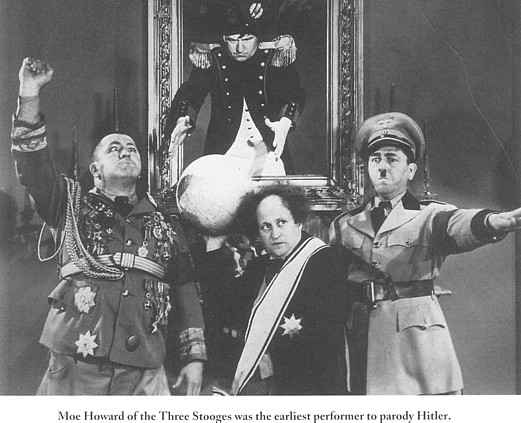
1945 World War II: Various:
Reich Propaganda Minister Goebbels—at a last conference at his ministry—speaks to the assembled bureaucrats on their place in history:
Gentlemen, in a hundred years time they will be showing a fine color film describing the terrible days we are living through. Don't you want to play a part in that film? . . . . Hold out now, so that a hundred years hence the audience does not hoot and whistle when you appear on screen. (Bullock)
[See: The Last Days of the Third Reich?]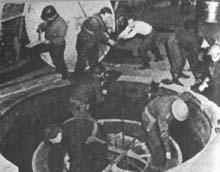
Espionage: In Strassfurt, Germany, U.S. Lieutenant Colonel Boris T. Pash seizes half a ton of uranium, in an attempt to foil Soviet Union plans to build an atomic bomb.
[See: Where Would We Be Without Hitler's Scientists?]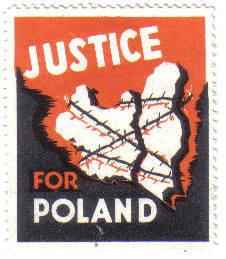
Poland: Stalin to Churchill: Mikolajczryk's statement represents of course a great step forward, but it is not clear whether Mikolajczryk also accepts that part of the decisions of the Crimea Conference which deals with the eastern frontiers of Poland. I should be glad, first, to receive a full text of Mikolajczryk's statement, and, secondly, to receive from Mikolajczryk an explanation as to whether he also accepts that part of the decisions of the Crimean Conference on Poland which deals with the eastern frontiers of Poland.
1949 Nuremberg Tribunal: US IMT prosecutor Telford Taylor, in International Conciliation, writes:
Nuremberg's influence on world politics is of a high order, both now and in the long term . . . . It is undoubtedly a dim but growing awareness that we have deeply committed ourselves to the Nuremberg principles by undertaking to judge men under them and punish men for their violation that explains the comment one so often hears today that "Nuremberg has established a dangerous precedent."
[See: Are There Any Lasting Effects From the Nuremberg Trials?]1961 Cold War: Bay of Pigs: About 1,500 CIA-trained Cuban exiles launch an invasion at the Bay of Pigs on the southwestern coast of Cuba in a failed attempt to overthrow Fidel Castro. (AP)
1969 Architect of Czechoslovakia’s Prague Spring resigns: Alexander Dubcek, the communist leader who launched a broad program of liberal reforms in Czechoslovakia, is forced to resign as first secretary by the Soviet forces occupying his country. The staunchly pro-Soviet Gustav Husak was appointed Czechoslovak leader in his place, reestablishing an authoritarian communist dictatorship in the Soviet satellite state. For further information, see History.com
1975 Cambodia: Phnom Penh falls to Communist insurgents, ending a five-year civil war.
Edited by Levi Bookin (Copy editor)
levi.bookin@gmail.com



Click to join 3rdReichStudies

Please note that the list-owner and the moderator are not responsible for, and do not necessarily approve of, the random ads placed on our pages by our web server. They are, unfortunately, the price one pays for a 'free' website.
FAIR USE NOTICE: This site may contain copyrighted material the use of which has not always been specifically authorized by the copyright owner. We are making such material available in our efforts to advance understanding of historical, political, human rights, economic, democracy, scientific, environmental, and social justice issues, etc. We believe this constitutes a 'fair use' of any such copyrighted material as provided for in section 107 of the US Copyright Law. In accordance with Title 17 U.S.C. Section 107, the material on this site is distributed without profit to those who have expressed a prior interest in receiving the included information for research and educational purposes. If you wish to use copyrighted material from this site for purposes of your own that go beyond 'fair use', you must obtain permission from the copyright owner.